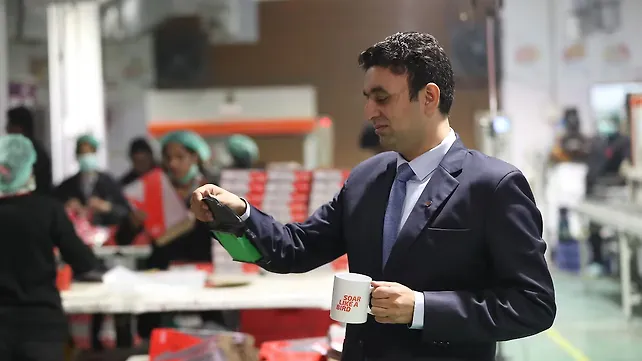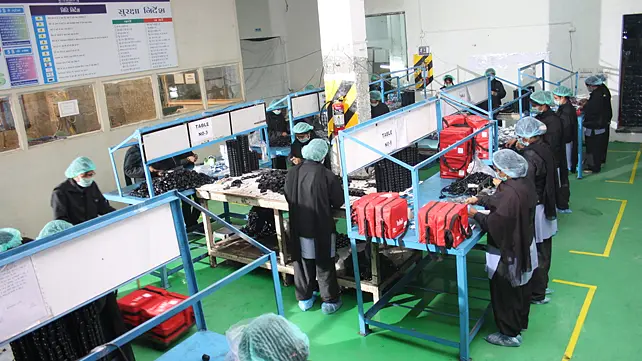
It is clear that a revolutionary disruption is taking place in the automobile industry. Whether it is the advent of greener fuels or increased use of technology, this disruption is shaking the business models automakers and component OEMs have operated around so far. The disruption is not just calling out the ecosystem players to test new waters but also warrants these players to invest in research and development (R&D) like never before.
Steelbird Group, known for manufacturing riding helmets and auto components in India, is also gearing up to prepare for the future of the automobile industry. While it is still concentrating on components such as air filters, tyres, and other rubber components, the group has also recently collaborated with an Israel-based company to venture into cybersecurity.
Manav Kapur, Executive Director, Steelbird International, noted, “Off lately we have gotten into the cybersecurity side of the vehicles. We plan to invest approximately INR 100 crore in the next five years to develop new products and solutions for the automotive industry.”
It is worth noting here that the components business unit of the Steelbird Group generates most of its revenue (around 65%) from the aftermarket. The cybersecurity space in the automobile sector, on the other hand, is a business which would need to be focused more on OEMs.
New Ventures
The components business of the Steelbird Group, as Kapur highlighted, has not seen a negative fiscal year for the last 16 years. As a matter of fact, the unit has recorded double-digit growth during the last two fiscals. “Our share of revenue from the aftermarket segment has grown significantly,” Kapur noted.
However, the company is aware that the increased adoption of electric vehicles will impact the conventional components business. At the same time, it also understands that the aftermarket business of components like air filters for ICE two-wheelers will stay afloat as a majority of these will continue to be used in different parts of the country.
“We have a very clear vision for our focus on the aftermarket business for the next ten years. We do not see any downside in the demand from the aftermarket in the next ten years. The company is also going to use this time to develop new products for the industry and upcoming trends,” explained Kapur.
Tyres and Cybersecurity are the verticals the company will focus on developing during these ten years. Entering the tyres vertical seems to be the company’s first move towards a secured future in India. The Cybersecurity company that Steelbird has tied up with, as informed by Kapur, is already doing business with Audi, BMW, Nissan and other global brands.
“We will be servicing all the clients of Cybellum Tech in the Indian market. We will also be developing new business for Cybellum in India,” he said.
Steelbird is also looking at developing EV components and claims to be in talks with several more international companies for the same. However, Kapur did not reveal any of these names owing to the NDA. The automotive sector is a capital-intensive industry, and the company plans to include an INR 100 crore investment in developing new products and solutions during the next five years. It had reported revenue of around INR 350 crore during FY22.
“I think there is enough time to build on other things and the new wave. Looking at our core competencies I think our focus will continue to remain on safety and security for all the sectors of mobility,” said Kapur.
As per Markets & Markets, the global automotive cybersecurity market is projected to grow from $2.0 billion in 2021 to $5.3 billion by 2026, growing at a CAGR of 21.3%. The India tyre market, as per EMR, attained 177 million units in 2020. The market is further expected to grow between 2022 and 2027 at a CAGR of 3.6% to reach 218 million units by 2026.
In 2020, the global demand for tyres reached nearly 3378.96 million units, growing at a CAGR of 4% between 2016 and 2020. It is expected to grow at an almost similar rate between 2022 and 2027, growing at a CAGR of 4%, attaining a volume of 4111.02 million units by 2026.

Major Step Towards International Markets
Steelbird has also recently partnered with TVS Group to set up an air-filters manufacturing business in Dhaka, Bangladesh. The group has recently forayed into the business of tyres and sees the same as a step towards securing the company’s future in the automotive segment.
Unlike the cybersecurity business, the tyres segment is not dependent on OEMs because of the aftermarket opportunities, and Steelbird seems to have a ‘no fail’ formula when it comes to capturing the aftermarket.
“The company is investing INR 40 crore in setting up an air-filter manufacturing business in Bangladesh. The focus in Bangladesh will also be aftermarket,” said Kapur.
This new manufacturing facility in Bangladesh is also a part of Steelbird Group’s international expansion plans, as this is its first manufacturing facility located outside the country. India contributes over 90% of Steelbird’s revenue every year, and the company is now looking to generate more revenue from the international markets.
“We concentrate on all the aspects but our majority revenue comes from India, and from the aftermarket because the name Steelbird is more prevalent in that space. Steelbird as a name is well understood by the customers because of the helmets and by mechanics it is well understood for rubber components and air-filters,” said Kapur.
The company has been present in the components space for over fifty years. The group had originated its operations from the components business only, which has grown 18% year-on-year during the last three fiscals. One of the biggest achievements for the company, as per Kapur, has been its local sourcing strategy. The group claims to source 95% of the raw materials it uses in its products from India.